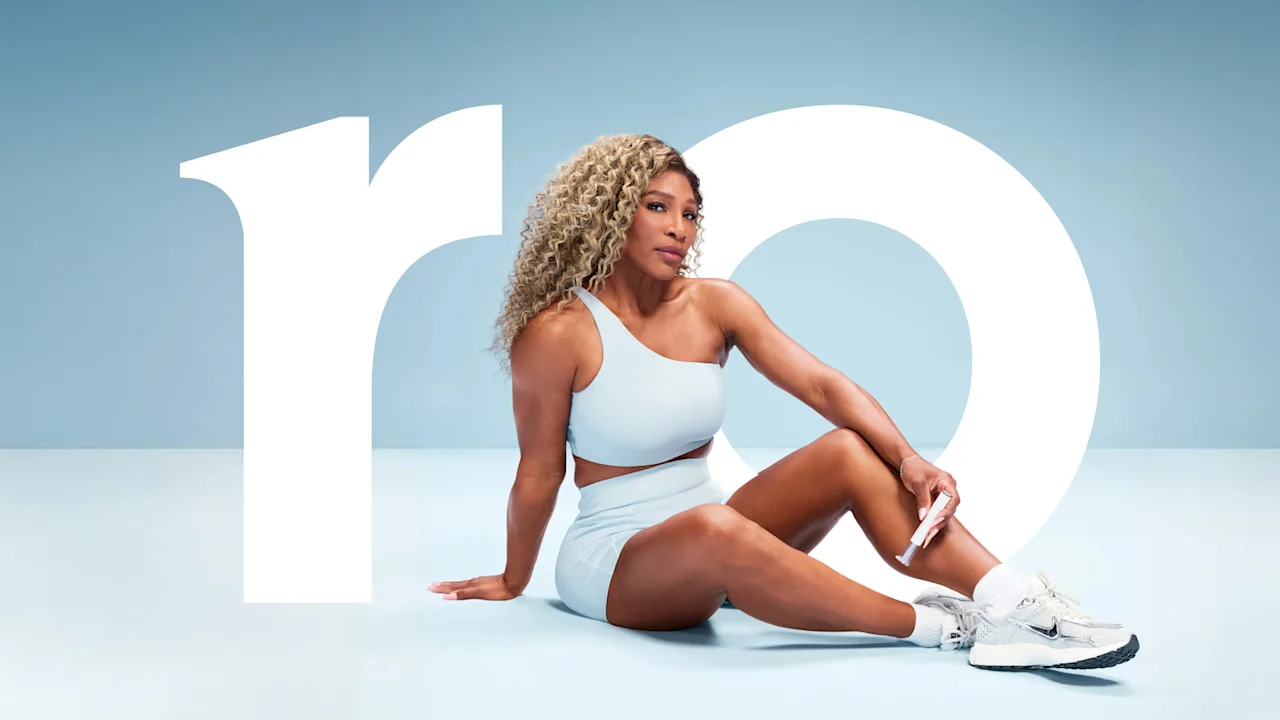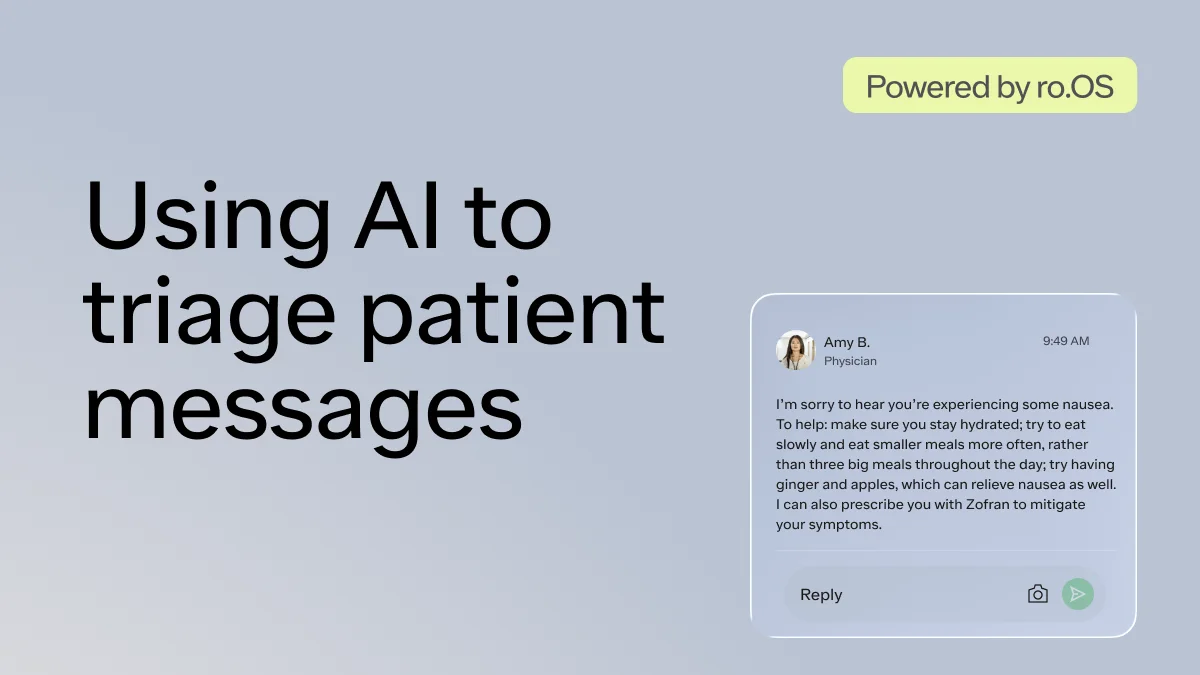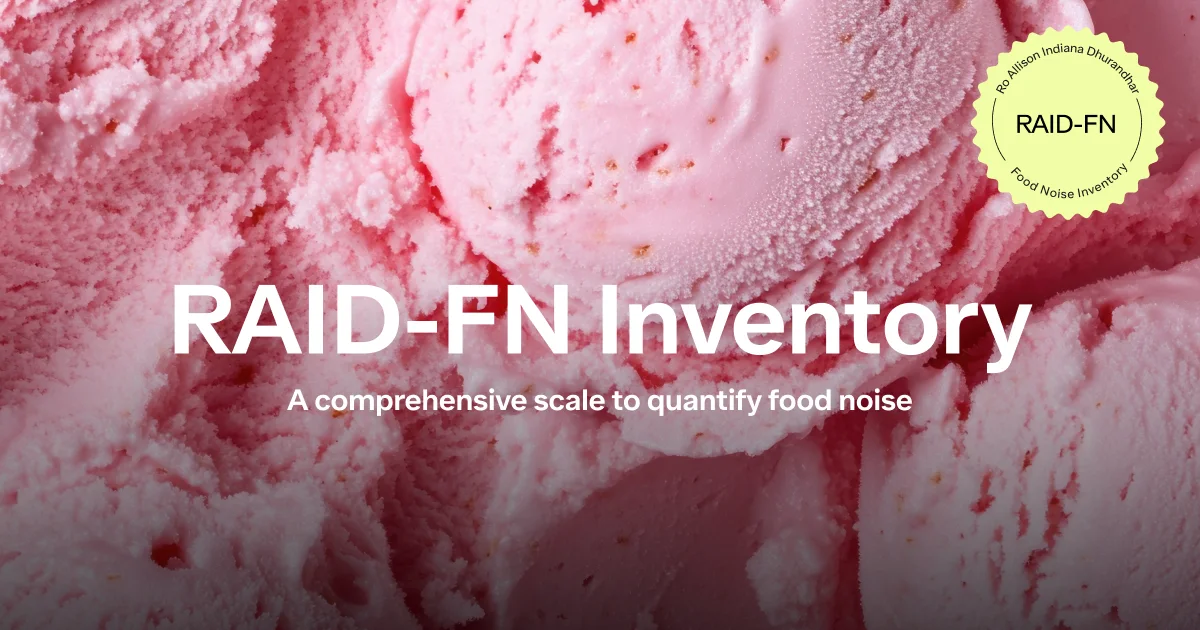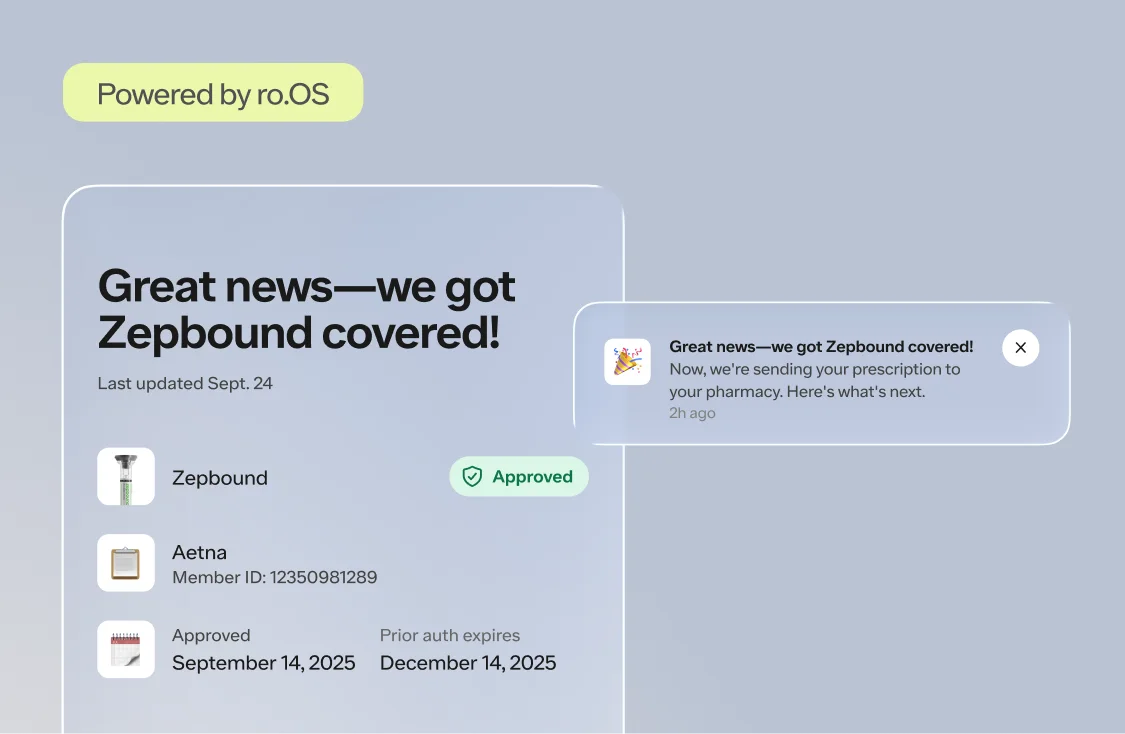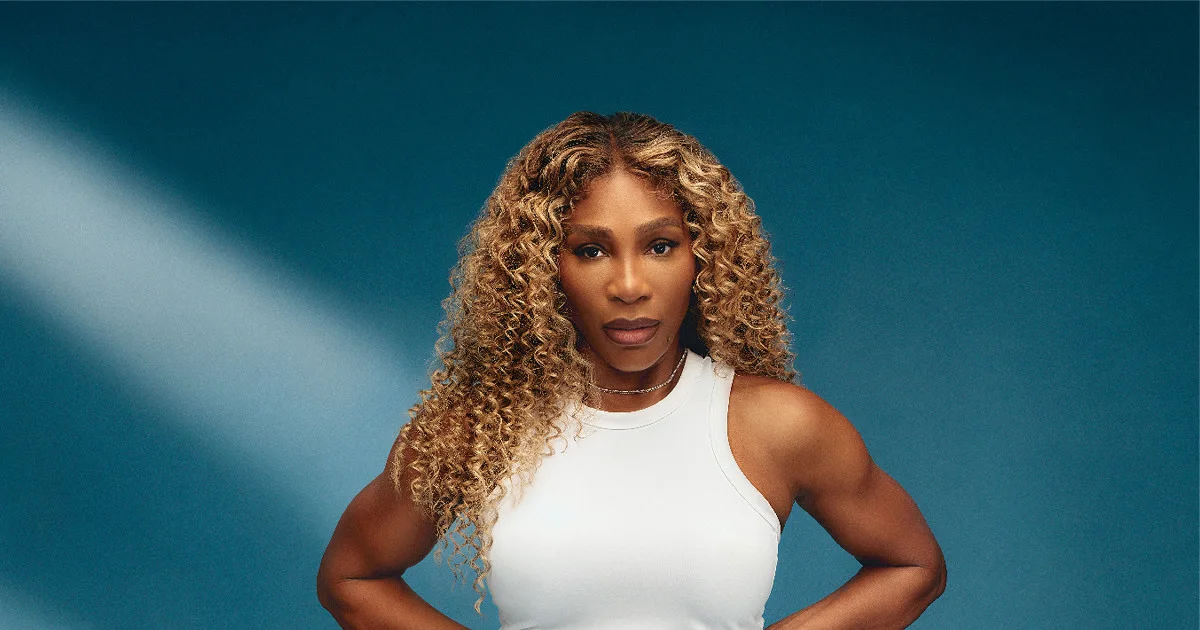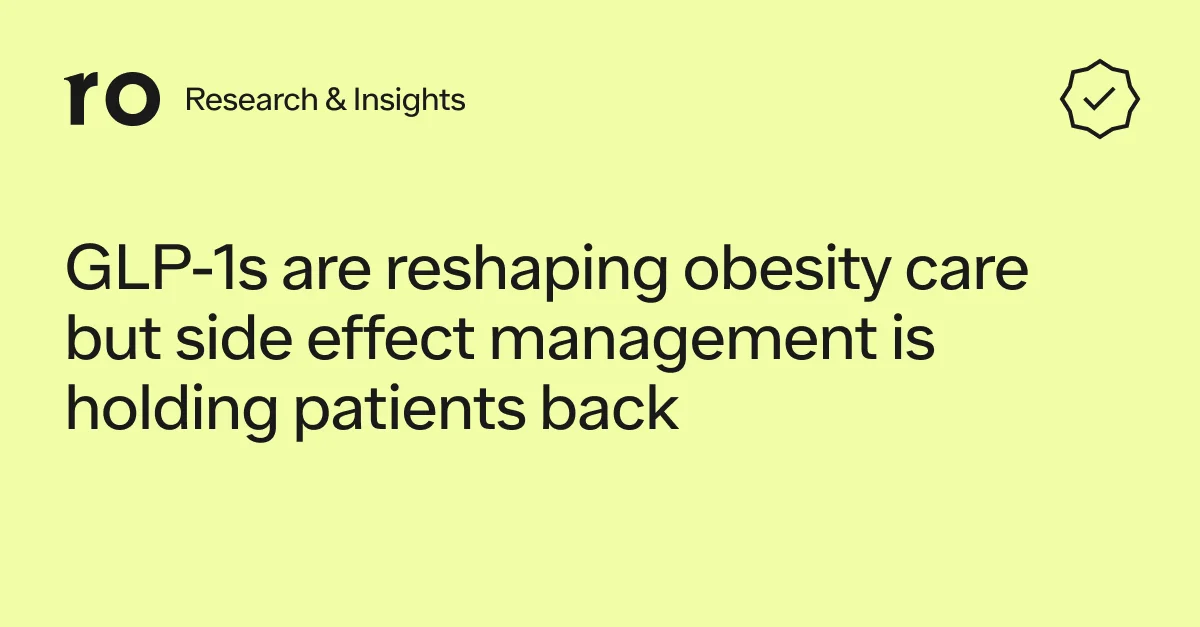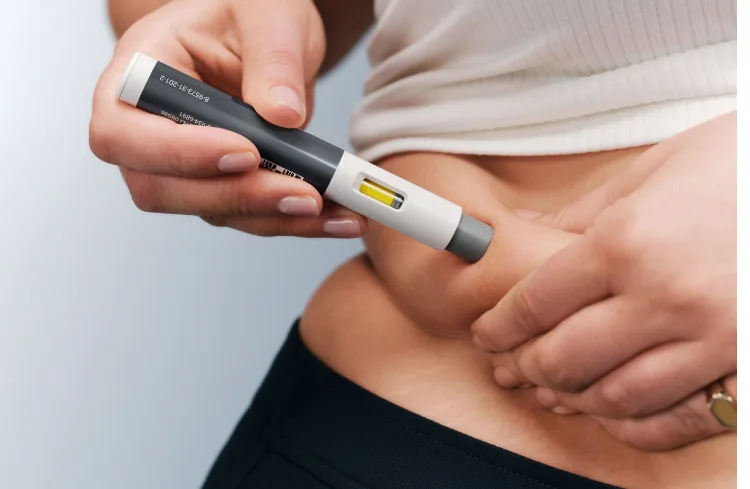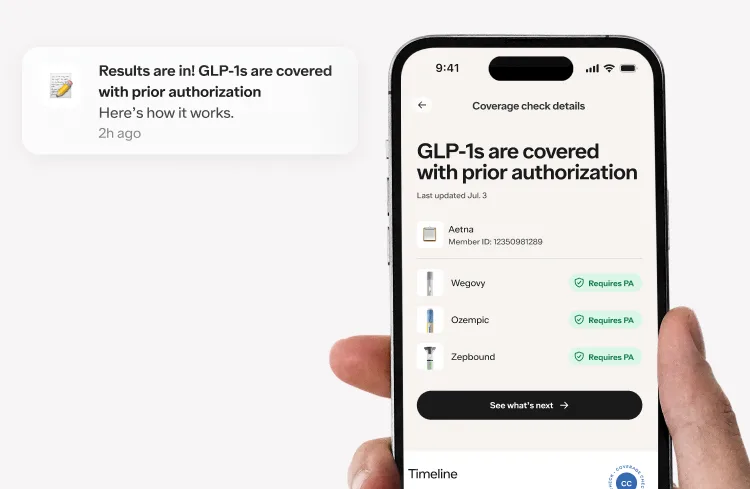Here's what we'll cover
Here's what we'll cover
Here's what we'll cover
On a recent Saturday afternoon Google Hangout, after almost eight hours of trying to help a patient, a Ro’er looked at me and said “But it’s not our fault…but that doesn’t matter. We need to fix this.”
A lot of founders will tell you that some of their most memorable moments, some of the moments they are most grateful for, are the ones deep in the thick of it. This is about one of those moments.
In January of this year, we launched the Body Program, a comprehensive obesity program centered around GLP-1s. It includes ongoing 1-1 provider care (messaging and video check-ins), lab testing, 1-1 coaching by nurses, an educational curriculum and more.
Since launch, we’ve been extremely encouraged by the demand. Anyone who's been on the internet in the last 6 months has seen GLP-1s take over the zeitgeist. I saw the impact of these treatments up close as my father, a physician himself who has diabetes and has had four heart attacks and a stroke, is at his lowest weight in 40 years. It changed his life.
When the program first launched, there were the usual growing pains: from small improvements like adding FAQ questions, tweaks to the onboarding flow, and email notifications to more substantial, but typical, improvements like onboarding more providers, nurses, and care coordinators.
And with each iteration, things were getting better and better. From the comfort of their home, patients were having 2 doctor visits, completing lab tests, and getting insurance coverage within 2-3 weeks. Example timeline from a Reddit Post:
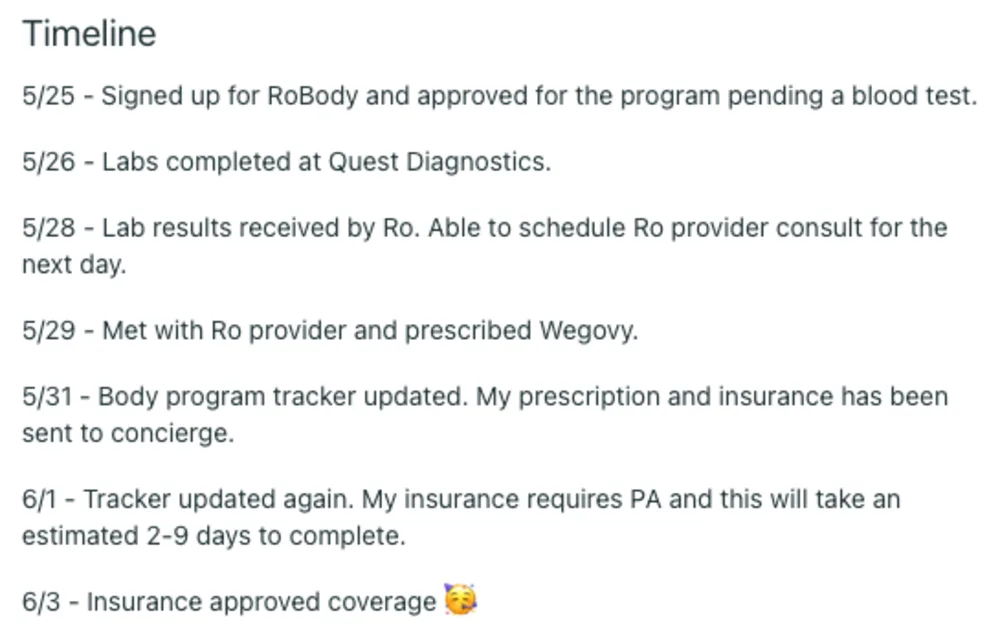
Patient satisfaction rates were climbing each week (4.2+ at Ns >1000) and ~85% of patients said they found the program valuable or extremely valuable. But every founder cares more about the 15%.
This is a story about the 15%
Ro normally handles everything from online diagnosis to the delivery of medication through our own pharmacy fulfillment centers. For the first time in Ro’s history, there are two core parts of the customer experience that we do not have full control over:
Insurance Coverage: we don’t control what drugs are covered
Medication fulfillment: patients are picking up medication at their local pharmacy
And for the first time in Ro’s history, we’re getting repeated feedback I’ve never seen. Reddit isn’t all glowing reviews. If you head on over you’ll see posts titled: “Insurance denied”, “Insurance woes”, “It’s been two weeks”, “Rx sent to Pharmacy a week ago”, “How do I get past this stage?”, “Wegovy Shortage”, “Super frustrated!”, “I’m confused”, and “Disappointing experience”.
I’ve spoken to countless patients and, with their permission, have read thousands of messages. I’ve seen patients go from all caps cursing in a message thread to crying on the phone because they haven’t felt cared for or acknowledged by the healthcare system as they’ve struggled with obesity for the last 10 years. I don’t blame them for a single second. They have every right to be frustrated.
Reading through their messages and speaking to them directly, my heart hurts. In some cases because we can definitely do better but also because, in others, I’m not sure anyone can. I’ve seen insurance companies tell our providers that under no circumstances will they cover Wegovy even if the patient fits the clinical criteria and has unsuccessfully tried every other method to lose weight and improve their overall health for years. I’ve seen pharmacies tell providers to stop calling them to see if they have supply. I’ve seen hurdles presented to patients to get coverage that had to have been designed by someone on their worst day.
When you’re in the data, and you see a greater than 50% approval rate for coverage for a notoriously difficult treatment to obtain coverage for, you can’t help but be proud of the team. But when you speak to patients directly, and can put a person and a story to the other 40%+ who don’t receive coverage, you can’t help but think you’re letting them down.
And in some instances, we are letting them down. If 96% of messages are responded to within 24 hours, what about the 4%? If 50%+ are approved for treatment by their insurance company, what about the 40%+ who are not? If 85% find the program valuable, what about the 15%?
“But it’s not our fault…but that doesn’t matter.”
In May, Novo Nordisk, the makers of Wegovy (and Ozempic), announced a shortage of starter doses of Wegovy (0.25mg, 0.5mg, and 1.0mg). They wrote, “while we are actively producing and shipping all dose strengths of Wegovy® and have taken significant measures to increase capacity, we will only be able to supply limited quantities of 0.25 mg, 0.5 mg, and 1 mg dose strengths to wholesalers for distribution to retail pharmacies which will not meet anticipated patient demand. We anticipate that many patients will have difficulty filling Wegovy® prescriptions at these doses through September.”
So some patients will be able to receive medication. But, what about those who aren’t?
Ro’s principles start with “Fight for Patients” and end with “Full Ownership.” While the national shortage is not in our control, it doesn’t mean it’s not our problem. With the limited insurance coverage of Wegovy and the shortage, we know that a not insignificant number of patients may be frustrated and direct that frustration to us. We nevertheless are going to keep fighting on behalf of every patient given that the medication is still available to some and it can have a transformative impact in people's lives.
Here is what we’re doing:
Expanding our formulary: While we already offered GLP-1 options in addition to Wegovy, we have also added Saxenda, another GLP-1 medication approved for weight loss, to our program's offerings.
Proactively messaging all patients: We have already been actively communicating with current and prospective Wegovy patients about the shortage. We will continue to provide updates so they can discuss options with a Ro-affiliated provider (we also created a Wegovy Shortage Guide here).
Pulling back on advertising: Following Novo’s lead, we’ve paused key promotional efforts (including all TV). We’re reassessing other promotional plans as well.
This is and will be a challenge for our patients for quite some time. We’re used to exceeding the expectations of patients who come through our virtual doors or being able to make it right if we don’t. While the Body Program has had an amazing impact on thousands of patients’ lives (77% female, average age of 44, average BMI of 34, evenly distributed throughout the U.S.), there is still so much room to improve.
There are three main reasons:
Public commitment to patients: I want patients to know that our commitment to them is that we will always fight for them and take full ownership over their problems, regardless of whether it’s “our fault” or not. That’s what “Full Ownership” means.
Acknowledgement of the shortage and actions we’re taking: We’re not sticking our head in the sand. We know there is a shortage, and we want to be extremely communicative with patients about it and help them either through it or help them find an alternative.
For Ro’ers: People will write or comment about our shortcomings, and we should, too. Scrutiny is good. There’s never going to be a bigger microscope than the one we put on ourselves, and it will only make us stronger.
This is just the beginning for the Body Program. Obesity is the most common chronic condition in the U.S. and patients deserve so much more than the healthcare system has delivered. We will continue to invest in delivering the highest quality obesity care with the hopes of helping millions of patients across the country.
To patients, through and beyond the shortage, we’re going to keep fighting for you. To Ro’ers, let’s keep building, learning, and taking full ownership.
